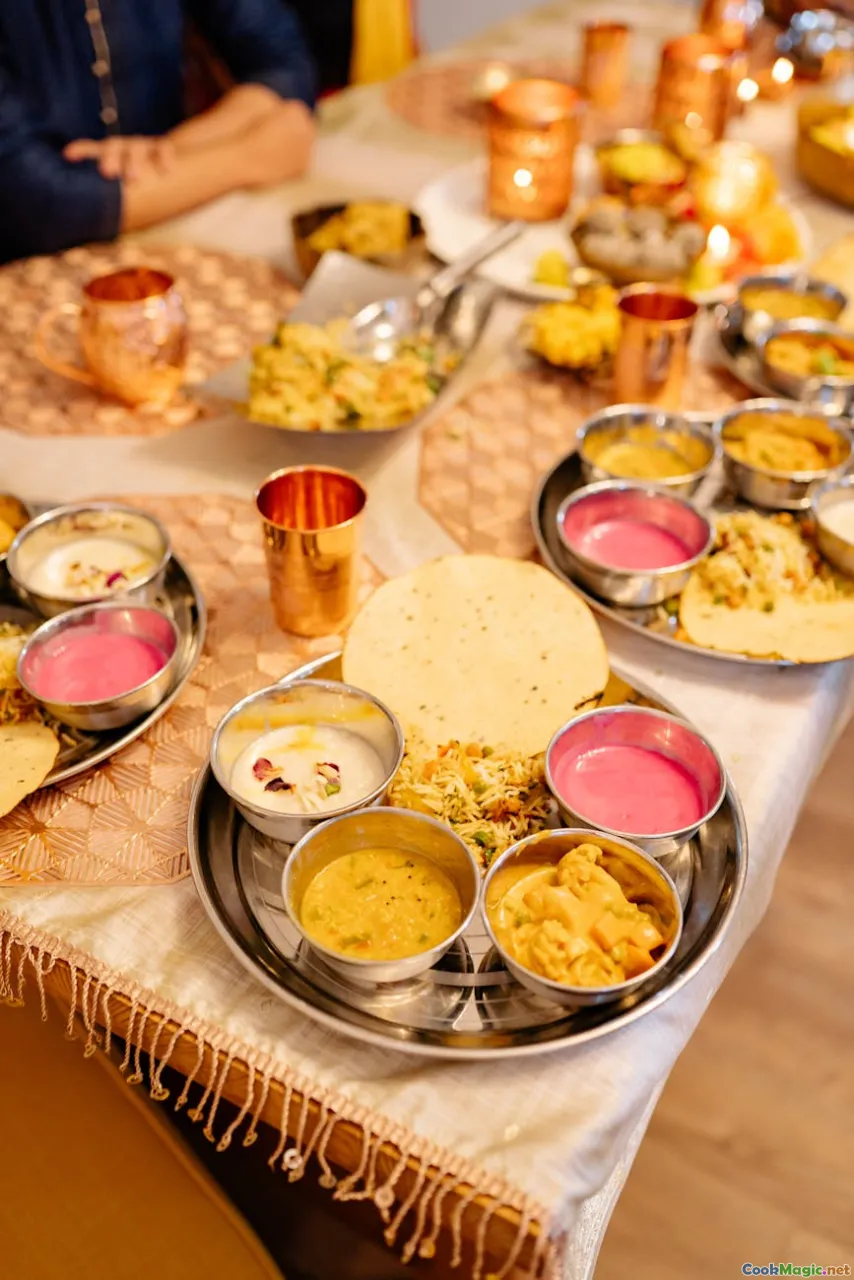Interpreting Grenadian Festive Food Traditions
7 min read Discover the vibrant world of Grenadian festive food traditions, exploring history, culture, and the sensory delights that define celebrations. April 26, 2025 23:55
Interpreting Grenadian Festive Food Traditions
Imagine a land where the air is thick with the aroma of spiced meats, sweet fruits, and smoky herbs—a place where every flavor tells a story of history, resilience, and community. Welcome to Grenada, often called the "Spice Isle," where festive food traditions are more than just meals; they are vibrant expressions of identity, history, and togetherness.
The Heartbeat of Grenadian Celebrations: Food as Cultural Heritage
Grenadian culinary traditions are deeply woven into the fabric of its cultural and social fabric. These festivities often revolve around communal gatherings, religious events, or national holidays, each marked by an array of dishes that reflect the island’s diverse history—from Indigenous roots to African, European, and Asian influences.
Food in Grenada serves as an edible narrative, recounting stories of survival, adaptation, and celebration. During festivals such as Grenada Carnival or Harvest Festivals, tables groan under the weight of colorful dishes that burst with flavor and history.
Historical Roots and Cultural Significance
A Melting Pot of Influences
Grenada’s history as a colonial sugar plantation economy is etched into its festive cuisine. The introduction of African slaves brought culinary traditions that blended seamlessly with Indigenous ingredients and European cooking techniques. The result? Unique dishes that embody resilience and cultural pride.
Religious and National Celebrations
Religious festivals like Emancipation DayorLentsee specific foods taking center stage. For example, during Lent, Grenadians indulge inFungee and Pepperpot, a hearty, comforting dish that symbolizes unity and faith. Emancipation Day celebrates freedom with dishes like Oil Down, a rich, savory stew that is a true emblem of Grenadian identity.
Iconic Festive Dishes and Their Stories
Oil Down: The National Treasure
No discussion of Grenadian festive food is complete without mentioningOil Down. This one-pot wonder is a symphony of flavors—tender salted meat, breadfruit, callaloo, and vegetables simmered slowly in seasoned coconut milk and spices. The aroma alone is intoxicating, drawing family and friends to gather around.Personal Reflection: I remember my first Oil Down during a family gathering; the dish was bubbling with flavors and a hint of smoky richness that immediately connected me to the island’s soul.
Callaloo Soup and Stew
Made from leafy greens, coconut milk, and spices, Callaloo is a versatile ingredient. During festivities, it’s transformed into hearty soups or stews, often enriched with crab or salted meats. Its deep green color and velvety texture symbolize fertility and life.
Roti and Curried Meats
Influenced by Indian indentured laborers, Roti filled with curried chicken or beef is a festive favorite. The flaky, golden exterior and aromatic filling evoke a sense of warmth and cultural fusion.
Sweets and Desserts
Festive occasions are incomplete without confections like Black Cake—a rich, rum-soaked fruitcake flavored with spices and dried fruits—and Johnson’s Pepperpot, a sweet coconut pudding infused with nutmeg.
The Sensory Experience: Tasting Grenadian Celebrations
Imagine biting into a piece of Black Cake: the moist, dense crumb packed with dried fruits, the aroma of rum and spices enveloping your senses. Or savoring a spoonful of Oil Down—each bite revealing layers of salted meat, tender breadfruit, and savory broth.
The textures vary from the melt-in-your-mouth softness of callaloo to the crispy, flaky Roti. The smells—rich, smoky, sweet, and spicy—are evocative of the island’s history and its people’s resilience.
Personal Insights and Modern Twists
In recent years, chefs and home cooks alike have infused traditional recipes with contemporary techniques and local ingredients, creating exciting new interpretations. For example, vegan versions of Oil Down now feature plant-based proteins and freshly harvested vegetables, making these traditions accessible to a broader audience.
As a food writer, I’ve had the privilege of tasting fusion dishes that honor tradition while embracing innovation. These adaptations ensure Grenadian food traditions remain vibrant and relevant.
Preserving and Celebrating Traditions
Festive foods in Grenada are more than just dishes—they are symbols of community, heritage, and pride. Family gatherings, street festivals, and religious celebrations all serve as platforms to pass down recipes, stories, and cultural values.
Participation in these culinary traditions fosters a sense of belonging and continuity, especially for younger generations eager to connect with their roots.
Conclusion: A Feast of Heritage and Heart
Interpreting Grenadian festive food traditions offers a window into a culture that values resilience, community, and the joy of shared meals. Each dish is a testament to the island’s history, its people’s ingenuity, and their unwavering spirit.
So next time you indulge in a spicy Roti or savor the richness of Oil Down, remember—you are tasting centuries of history, love, and cultural pride. Grenadian cuisine is not just about feeding the body; it’s about nourishing the soul.
Embrace these flavors, celebrate the stories they tell, and let your palate journey through the vibrant tapestry of Grenadian festive traditions.









